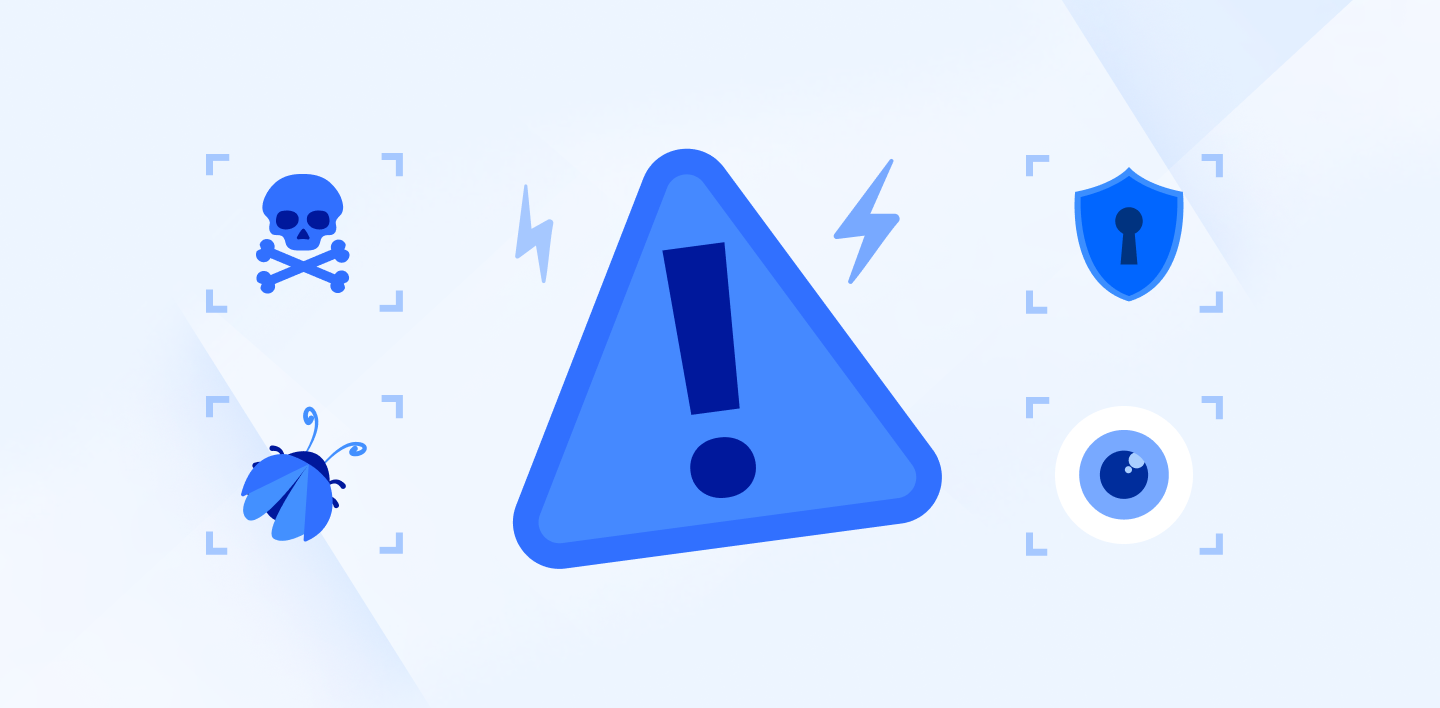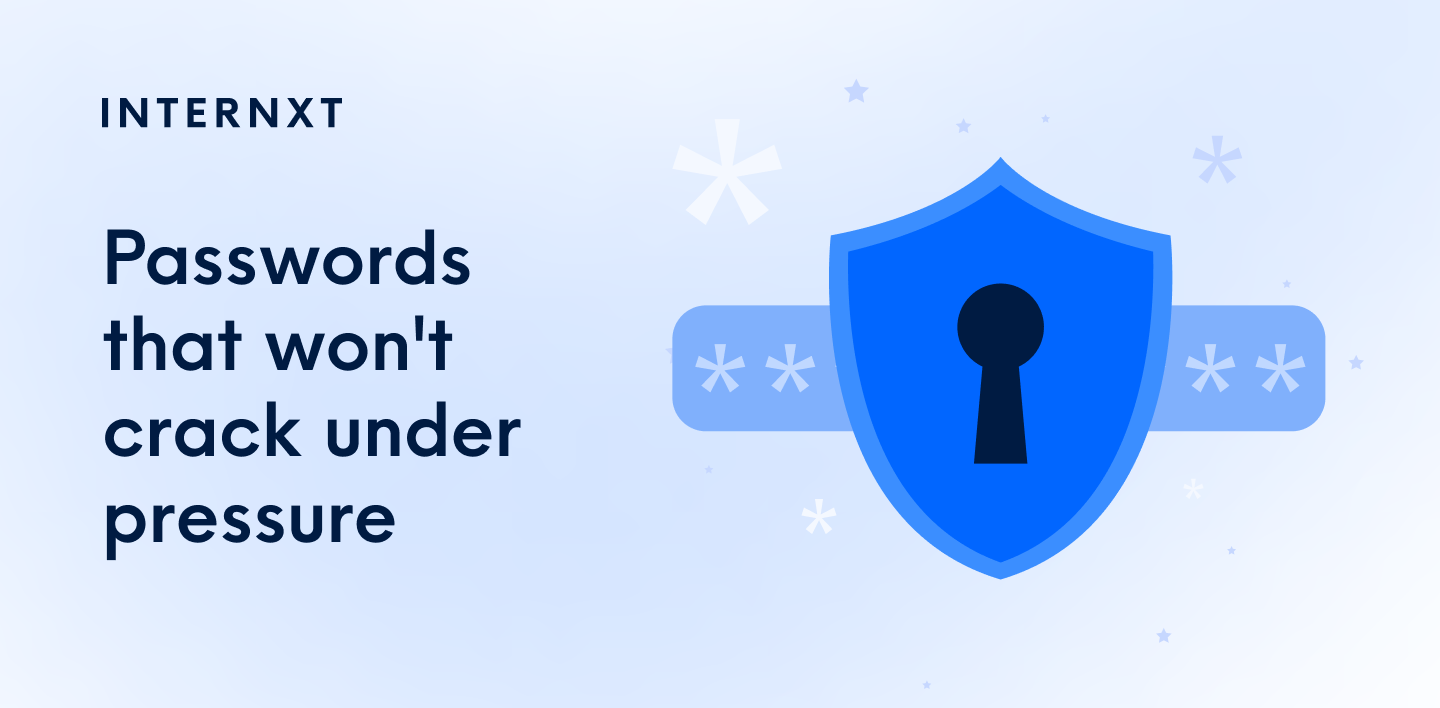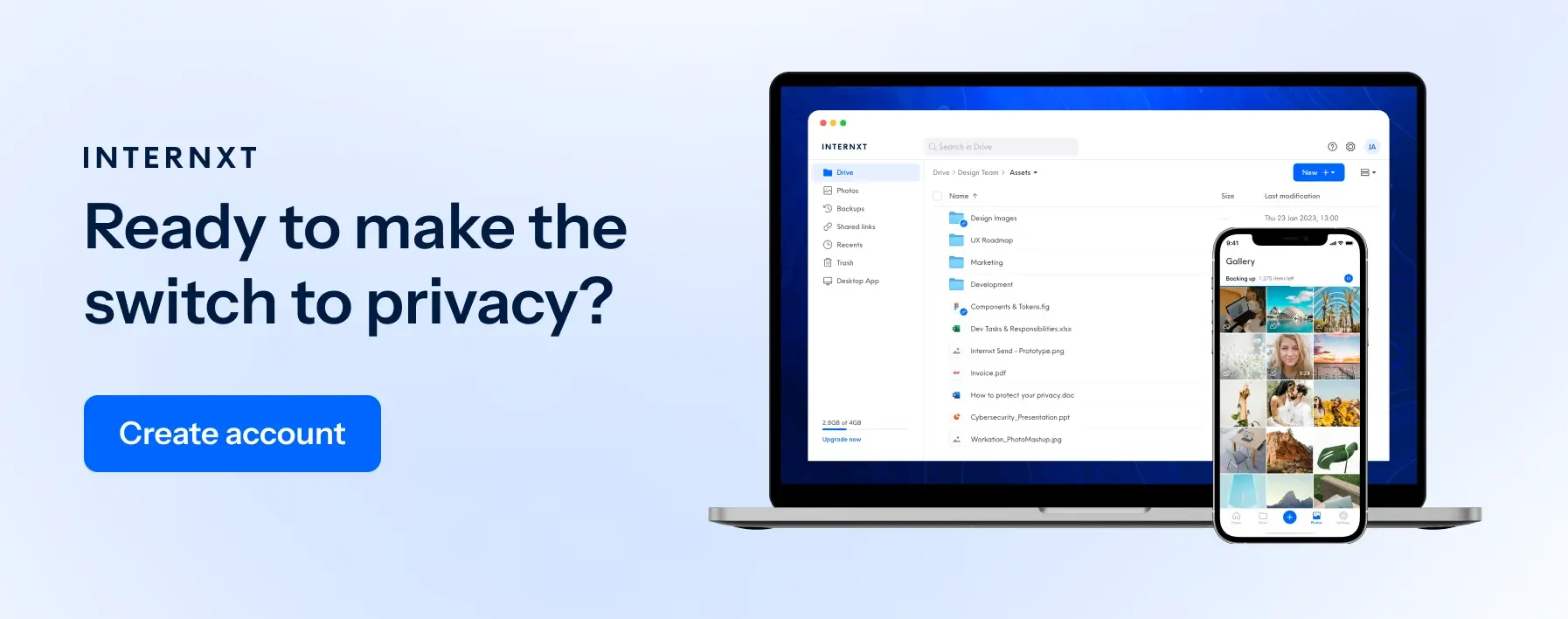Is Cyber Security Hard? The Basics Made Easy To Understand

Being online means that we are constantly interacting with others and sharing information across borders. It also means that Google is tracking you.
This virtual international travel creates countless opportunities for cybercriminals to access our personal data. If you dive into how the internet works and how to protect your privacy, you’ll start to hear the word cybersecurity a lot. But what is cybersecurity exactly? Is cybersecurity hard?
Most of us understand that cybersecurity is all about preventing bad guys from breaking into our computers and stealing our information. We’ve seen many different explanations, including articles, infographics, and even cybersecurity explainer videos.
Cybersecurity seems simple enough on the surface, though few bother to explore the concept further because it quickly becomes very technical, complex, and intimidating.
In this post, we'll discuss the basics of cybersecurity. Is cybersecurity really as hard as it sounds?
What is Cyber security? A Beginner-Friendly Explanation
First, let's start with understanding what cybersecurity actually is. In its simplest form, cybersecurity is the practice of protecting online information from unauthorized access or theft.
Online information includes everything from our personal data to our financial records. Information risks can include unauthorized access, use, disclosure, interception, or destruction of data. What kind of data are we talking about? Data typically includes but is not limited to, the confidential information of a business or individual user.
Once cyberattacks happen, they often create a ripple effect that is felt throughout whole organizations or online communities. This is why cybersecurity is especially important for businesses of all sizes—regardless of the industry, they participate in.
The Key Concept of Cyber security: The CIA Triad
A key unifying concept of cybersecurity is the preservation of a user or organization’s confidentiality, integrity, and availability of data (CIA).
Confidentiality
The term confidentiality refers to keeping information private and out of reach of unauthorized individuals. In other words, only those who are allowed to see information should have access to it.
Integrity
The term integrity is all about maintaining the accuracy and completeness of data. That means that the information cannot be edited or altered in any way without proper authorization.
Availability
Availability refers to ensuring authorized users have access to the data when needed. So whenever a user needs information, they are able to access it without any issues.
The end goal of all cybersecurity is to protect all three elements of the CIA triad. By preserving and safeguarding these three key components, users can keep information safe from cybercriminals.
Most Common Types of Cyber security Attacks
Both your personal information and business data are valuable to cybercriminals. Here are some of the most common types of attacks that they use to get their hands on your data:
Phishing attacks
Phishing attacks are fraudulent emails or messages that try to trick you into sharing your personal information or clicking on a malicious link.
Malware attacks
Malware is a type of malicious software that is designed to damage or disable computers, so you can't access your data. Viruses are a common form of malware.
Ransomware attacks
In a ransomware attack, a cybercriminal will encrypt or steal your data and then demand a ransom to decrypt it or return access.
SQL injection attacks
SQL injection is a type of attack that allows attackers to execute malicious code on your database. This gives perpetrators access to sensitive information, such as customer records or financial data.
Distributed denial of service (DDoS) attacks
A DDoS attack is an attempt to make a website or network unavailable by flooding it with traffic from multiple computers. These are used to overwhelm and shut down targeted sites.

Dangers of Having Poor Cyber security in Place
When you have poor cybersecurity, you won't only be putting your own data at risk. You will also be endangering the information of everyone who interacts with you online.
For example, if you use the same password for all of your accounts and one of those accounts gets hacked, the attacker will then have access to all of your other accounts as well as the capability to target accounts linked to yours.
There are a lot of tools available, such as cyber awareness pages and numerous infographics on the internet, that can help with this.
This is just one example of how cyberattacks can have a snowball effect. Once an attacker gets their hands on a piece of your information, they can easily use it to get even more sensitive data.
Poor cybersecurity practices can lead to:
- Identity theft: When cybercriminals gain access to your personal information, they can use it to commit identity theft. This includes opening new accounts in your name, filing for fraudulent tax refunds, using your Social Security number to obtain credit, and much more.
- Financial loss: Cybercriminals can use your financial information to make unauthorized transactions, steal your money, and rack up debt in your name.
- Reputational damage: When your data is breached, it can be weaponized to damage your reputation—both personally and professionally. Hackers may leak embarrassing photos or, at the very least, other people will lose trust in you and your ability to keep their information safe.
- Loss of business: A cyberattack can tarnish any goodwill your company has built over the years and cause your business to lose money, customers, and even its good standing.
- Fraudulent charges on your credit card: An attacker can make unauthorized charges on your corporate credit card, which can damage your credit score and leave you stuck with a hefty bill.
Implementing Cyber security: How to Prevent Cyberattacks
Now that we know some of the more common types of cybersecurity attacks, let's take a look at how we can prevent them. You can't completely eliminate the risk of cyberattacks, but you can take several steps to reduce the chances that your business or personal accounts will be targeted.
By implementing some simple cybersecurity practices, you can make it much harder for cybercriminals to access your data.
And no, you do not have to be a cybersecurity engineer or invest in the latest and greatest security technologies to be safe. Though, it would be helpful to enlist a dedicated team of cybersecurity professionals to help you out.
Regardless of your budget or computer expertise, there are many easy changes that everyone can make to better protect their data from cybercriminals.
Use strong passwords
Implementing strong cybersecurity can be as simple as choosing a strong password for your accounts. Creating a strong password is a solid part of good cybersecurity hygiene. Your password should be at least eight characters long and include a mix of uppercase and lowercase letters, numbers, and special characters.
You should also avoid using the same password for all of your accounts. If a cybercriminal gets their hands on one of your passwords, they will (almost certainly) try to use it to access your other accounts.
Keep your software up to date
As new threats are identified, software developers create updates to patch vulnerabilities. By keeping your software up to date, you’re ensuring that you have the latest protections against new and ongoing threats.
Back up your data
If you have a backup of your data, you can restore it if it's lost or corrupted in a cyberattack.
There are two main types of backups: local and cloud. A local backup is a copy of your data that is stored on an external hard drive or another device that is not connected to the internet.
A cloud backup is a copy of your data that is stored on a remote server. It may cost a little more in the long run than local backups but clouds are typically more convenient because you can access the backup files from anywhere.
Train yourself and your employees
Your employees are one of your greatest assets—but they can also be one of your biggest cybersecurity vulnerabilities. Cybercriminals will often target employees with phishing emails in an attempt to gain access to a company’s network.
Is cybersecurity hard? Not really if you train your employees. You can protect your business by training your employees on cybersecurity best practices, such as how to spot a phishing email and what to do if they receive one. Start by leading by example and get educated on all things cybersecurity and create a robust company security policy.
Enable two-factor authentication (2FA)
Two-factor authentication (2FA) is an additional layer of security that requires users to provide two pieces of information to log in to an account.
For example, you might use a password and a one-time code that is sent to your mobile phone. Two-factor authentication makes it more difficult for cybercriminals to gain access to your accounts.

Wrapping Up
We live in a world where technology is constantly evolving. Every day, we are finding new ways to use technology to make our lives easier. At the same time, cybercriminals are also finding new ways to exploit vulnerabilities in order to gain access to our personal data.
So, is cybersecurity hard as it sounds? Or do you have it now?
While there is a lot of technical jargon involved, the basics of cybersecurity are actually not that difficult to understand, as we have shared with you videos, articles and infographics about it. By taking some simple steps, you make it much harder for cybercriminals to access your data. Our cyberdefenses ultimately depend on making life harder for cybercriminals.
And remember, if you ever do find yourself the victim of a cyberattack (it happens), having a backup of your data will help you get back on your feet in no time.

